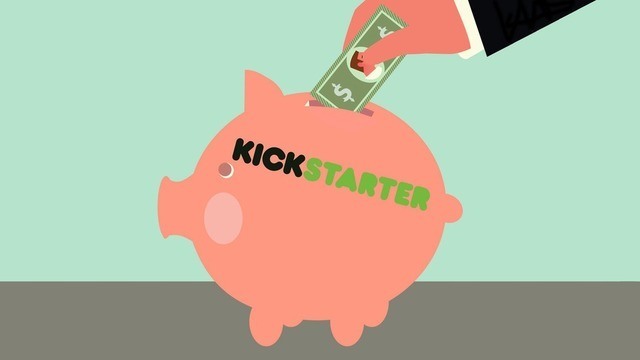Since the launch of the new crowdfunding company Fig (August 18th, 2015), many eyebrows have been raised in the direction of Kickstarter, asking them if they plan on competing with Fig on their level of equity crowdfunding.
If you’re unfamiliar with what equity crowdfunding is: when a crowd of people invest money into a company, they receive shares of said company. It could be considered a more beneficial form of investment for the investors; should the company or product become popular, investors can cash out big by selling shares.
While Fig is just a newcomer in the crowdfunding industry, they’re implementation of equity funding as an option to their backers is very radical.
Reaching out to Kickstarter

Polygon already approached Kickstarter on their stance when dealing with their new competitor, Fig, and Kickstarter gave the very dominant answer that they have no plans to add equity as an option, and instead prefer to focus on the developer’s options when getting funded for their projects.
Equity investment could become a major controversy since it offers the option to ‘own’ a piece of a game, and backers could even receive a cut of game’s profits upon release.
“Kickstarter has no plans to offer equity crowdfunding,”
“Kickstarter’s mission is to help bring creative projects to life, and we welcome more options for creators.”
– Kickstarter Representative
When looking at the business prospects of Kickstarter, it becomes difficult to read exactly what the future will hold for the company that has had such a strong reputation. Three successful game developers who have been heavily involved in Kickstarter’s fundraising and creation process are on the advisory board for Fig, adding just a bit more drama to the pot.
- Feargus Urquhart – CEO of Obsidian Entertainment, famous for Armored Warfare and South Park: Stick of Truth
- Brian Fargo – CEO of inXile Entertainment, created Torment: Tides of Numenera and Wasteland 2
- Tim Schafer – Founded Double Fine Productions that produced Hack ‘n’ Slash and Costume Quest 2
This could cause a large profit and popularity loss on Kickstarter since the three companies, Obsidian Entertainment, inXile Entertainment, and Double Fine Productions accumulated over $13 million dollars in funding through Kickstarter since 2012.
Diversity Could be the Key
When thinking of Kickstarter many people associate the company with the huge diverse set of campaigns and projects that they advertise. That one association itself could uphold Kickstarter’s reign on video game creation and funding. Their new competitor Fig will only host two campaigns at a time on their site, which is limiting the popularity at one front where developer’s can’t just submit their projects to be backed by the funders.
“We’re constantly amazed at the ingenuity and diversity of games on Kickstarter — thousands of them, from quirky side projects to ambitious blockbusters, and from creators of all stripes,”
“It’s a place where people make and support games because they love gaming. Kickstarter creators retain full ownership and creative control of their work. And our strong backer community makes Kickstarter the best place in the world for game makers to find an audience — one that extends beyond the core gaming crowd.”
-Kickstarter Representative
I’ll personally be paying attention to the fluctuating popularity that I expect will move from Kickstarter to Fig, and back and forth. Like with toys, when a new one shows up everyone wants to play with it; but true value will reign in the end onto which company has the best benefits.
What do you think of the equity option that Fig is offering to backers? Will it work or flop?







Published: Aug 19, 2015 11:00 am